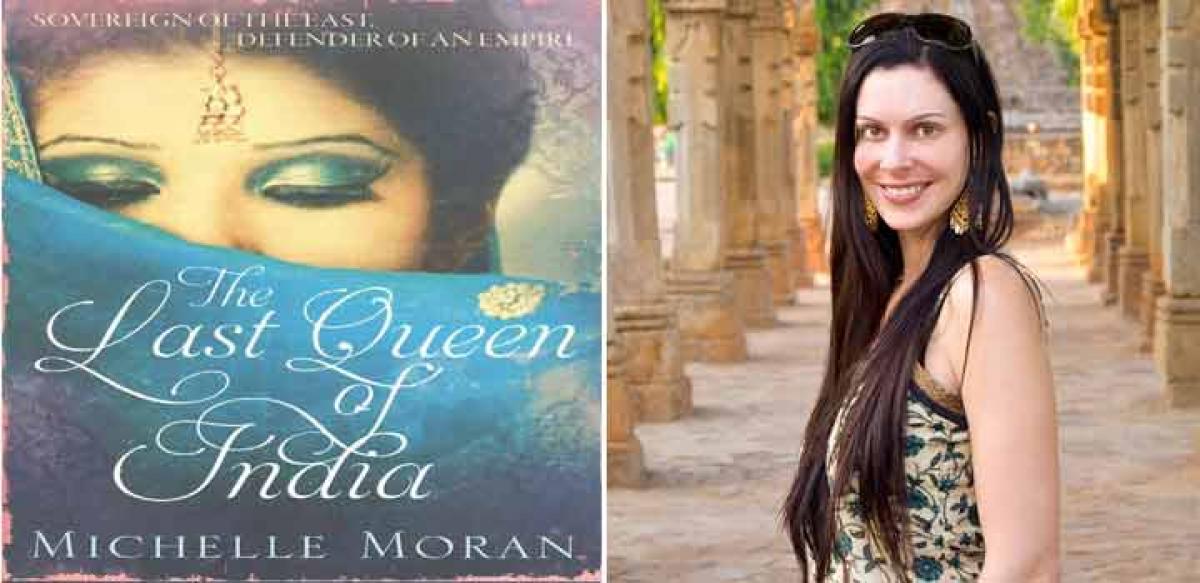Live
- DCA inspector arrested by ACB for demanding bribe
- TS LAWCET, PGLCET registration date extended
- Vijayawada: Sandeep Mandava elected president of NAREDCO
- Gold rates in Visakhapatnam stable, check the rates on 16 April 2024
- Akshaya Patra’s Narsingi kitchen gets upgraded
- Visakhapatnam: VUPPC vows to intensify Ukku stir if NDA wins again
- Guv Radhakrishnan inaugurates 98th AIU national vice chancellor conference 2024
- Visakhapatnam: Botcha Satyanarayana demands NDA stand on VSP sale
- Nellore: People ready to end ‘psycho’ rule, says BJP
- Velagapudi: Expedite probe into attack on CM, CEO to police
Just In

It was the year 1919 when complete independence to India was still a farfetched thought, and the 1857 war was tucked away into the pages of history and was reduced to a mere rebellion that was promptly quelled by the British, who only grew to be more powerful.
It was the year 1919 when complete independence to India was still a farfetched thought, and the 1857 war was tucked away into the pages of history and was reduced to a mere rebellion that was promptly quelled by the British, who only grew to be more powerful.
The book ‘The Last Queen of India’ by Michelle Moran narrates the most popular history of Rani Lakshmi Bai in a new light
An old woman, who has seen the war and the enormous changes that followed, contemplates writing her memoirs of an era that boasted of a brave queen who took up sword to defend her forces, Rani Lakshmi Bai of Jhansi, and a star warrior of her imperial guard – the 19-year-old Sita.
Sita born into a traditional society, where a girl child is unwanted and even killed at the time of birth – is lucky enough to have a father, who has different views. He does not subscribe to the concept of girls being a burden and would rather have his intelligent and brave daughter Sita to be a part of the unique all-woman imperial guard of Rani Lakshmi than to be married off or sold to a temple.
But it isn’t an easy task. Hundreds of girls train in martial arts and get educated adequately to pass the challenging tests conducted to choose the right members for the imperial guard.
Sita’s father’s only focus in life is to raise his daughter with all the right training, so as to be inducted into the coveted guard. And finally, when it’s time for the selection, an entourage of royal guards descends on the family and Sita passes every test that she is subjected to.
The moment comes when Sita leaves for Jhansi leaving behind her home, family and her young sister – however, she is all too happy to escape her grandmother even if it means pledging her life to celibacy, and to protect the ruler of Jhansi. Here, she begins to discover a whole new world.
Through ‘The Last Queen of India’, the author Michelle Moran, in her own words, takes the twenty-first-century readers to 19th century India. And, in doing so, she narrates the most popular history of Rani Lakshmi Bai in a new light.
Her imperial guard is not just a small force meant to protect her, but symbolic of the queen’s views on empowering women, and equality irrespective of caste and creed – quite a progressive thought for her times.
We read of the courage of Rani of Jhansi, who fought bravely with the British forces to protect her land, as a mother who fights to protect her son, and beyond this, an average reader of history does not know much else.
However, Michelle explores the story of Rani Lakshmi in its entirety through the eyes of her imperial guard who comes from a middle-class Indian society. She also throws light on the life and times of 19th century India beyond the royal palaces and its impact on the women.
Sita is one of the few women of her times to have managed to break free from the clutches of restricted (veiled) life and she fought along the brave queen with all her might. However, Sita’s childhood does show the ugly side of patriarchal India.
In addition to the brilliantly engaging narrative, Michelle writes about the significant part of Indian independence history without any reservation and mincing of words that comes across as very refreshing.

© 2024 Hyderabad Media House Limited/The Hans India. All rights reserved. Powered by hocalwire.com







